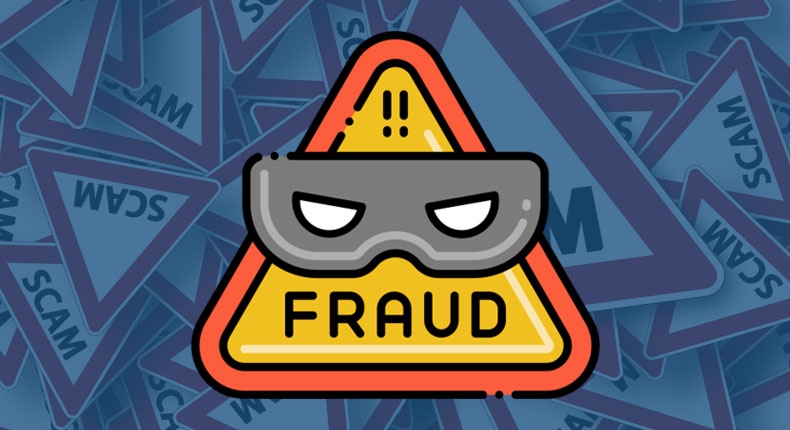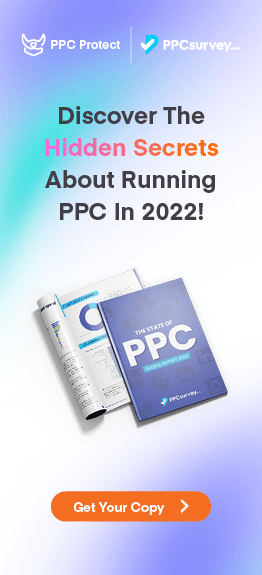If you’ve done a Google search for click fraud recently, then you’ve probably noticed the many different companies out there. With click fraud being a growing problem over the past few years, many new providers and solutions are continuing to pop up, all claiming to offer the best protection and the lowest price.
But with so many different click fraud detection providers out there, how can you work out which is right for you? Not all platforms are made the same, and many are targeted at specific users, such as large enterprises or small local businesses.
To help you on your journey of finding the right click fraud detection software for you, here are some key points you should consider before choosing your provider.
Questions To Ask Click Fraud Detection Software Providers

Before you decide to go ahead with a click fraud detection provider, a good trick is to ask them the hard questions before you give them any money. Asking the tough questions always helps separate the posers from the professionals and gives you a good idea who you’re dealing with.
Detailed and explanatory answers are a good sign that the company or support rep you’re talking to knows their software and the industry well. Vague and short answers, on the other hand, mean you’re either dealing with an outsourced support rep or they’re not giving you a detailed answer because they simply don’t know.
To ensure you’re choosing the right click fraud detection provider for your campaigns, here are some good questions you can ask them. Depending on their answers, it should give you an idea if you’re talking to professionals or not.
1. Do you analyse paid search activity in real-time?
The world of pay per click is certainly fast-paced, and many ads can receive clicks almost continually throughout the day. With a steady stream of users clicking your ads, you’ll want to ensure that your click fraud detection analysis is in real-time.
Some click fraud detection services will only start to monitor users when they land on your website, usually using some form of JavaScript code to do so. Other services will be able to track users before they land on your website by using tracking templates, making the analysis much faster.
Any type of delay in the analysis could result in a large gap in which fraudsters could attack your ads and end up costing you lots of money. But with real-time analysis, you’re much safer as you know as soon as a fraudulent user is detected, their IP will be instantly blocked.
By being blocked instantaneously, this stops the fraudsters from seeing your ads again and closes the gap in which they can attack your ads. This is especially important when dealing with automated botnets and robots. Even a two or three-minute analysis delay could result in you losing a large percentage of your ad budget.
2. Do you specialise in preventing paid search fraud?
In this modern digital world, there are many types of fraud hiding around every corner. Ad fraud might be the most common, but there are various other types, including social media fraud (fake followers and likes) and credit card fraud (unauthorised use of credit card to make purchases). Even within the ad fraud umbrella, different types of fraudulent activity exist on different media platforms.
When deciding on your click fraud provider, you should always check if they specialise in fraud prevention on the platform you’re looking for, or if it’s just another service they provide on a long list. The truth is, every type of fraud has its own unique solution, and one that might work for paid social advertising fraud might not necessarily work for paid search fraud.
Ensuring that your click fraud provider only
specialises in specific platforms that you use (e.g. Google Ads) is the only
way to ensure you get the best protection. Not only will they be spending all
their time and money developing protection for that platform, but they’ll also
have a wealth of experience and knowledge in tackling click fraud on that
specific platform at the source.
Compare this to other solutions that cover everything and its a clear example
of jack of all trades, master of none.
3. Can you introduce me to some of your customers?
When deciding which click fraud platform to use, it makes sense to read real reviews from existing customers who are already using the service. A business might tell you how great their service is, but of course, they’re going to say that. The real way to see what customers think about the software is to find real people who are already using it.
Any reputable business should be able to provide you with testimonials and references from existing clients and customers. If the best they can do is give you a review, then that’s not a good sign. Not only can reviews easily be faked, but if you think about it, businesses can write whatever they want on their own website.
The best way to see what users think about a service is to ask the business to put you in contact with one. If they can’t, then they either don’t have any customers or they don’t have any customers that are willing to say nice things about them. Pick a customer from their reviews page (if they have one) and ask to speak with them. The vast majority of customers will be ecstatic to share their experience with you!
4. Who can we speak to in your team?
Building a close relationship with any company is the key to success. And if you’re planning on working closely with a click fraud provider to reduce the amount of fraud on your ads, then you should have more than one direct contact.
Many click fraud providers will give you a “dedicated” account manager to help you get set up, but if you run into any technical issues, then the support can be lacking. Instead of giving you a direct line to their technical support team, all questions must go through your account manager. This means it can sometimes take days just to get a simple answer when it would be much more efficient to go direct to the required team.
This is what separates click fraud providers apart from good and excellent support. Do you really want to use your account manager as the middleman for every question, or would you rather have direct contact with every team? By having direct contact with every team, you’re much more likely to build a better relationship and get issues resolved faster.
5. What approach do you take to stopping paid search fraud?
There are many ways to stop pay per click fraud, with some methods being much more efficient and reliable than others. Before deciding on any click fraud detection software, you should have a good understanding of what tech they use and if they have any drawbacks.
One of the most common fraud prevention methods in the industry is to track users using a JavaScript snippet that advertisers install on their landing pages. Once a user clicks their ad and lands on their page, the code snippet then determines if they are legitimate or not.
For some website publishers, this code snippet significantly increases their page load speed while also being easily defeated by disabling JavaScript. If your protection is rendered null and void by just disabling JavaScript, then it’s not going to be particularly effective!
Other providers will use tracking templates as part of their analysis or a mixture of both tracking scripts and JavaScript code. If a provider only relies on JavaScript code, then be warned. Not only can this significantly decrease the user experience of users visiting your website, but it can be easily defeated, leaving you exposed to click fraud which they can’t stop.
6. Can you provide log data & analyse it for us?
Data reporting is one of the most important features of any click fraud detection software. Without it, there is no real way to determine if the provider is blocking fraudsters effectively and having any impact on your campaigns.
A great way to test what data your provider collects is to ask them for log data of every click during your trial. Any reputable click fraud service should be able to provide you with all the raw clicks so you can cross-reference them with your own data. Once you have the log data, it’s also a good idea to check for any discrepancies or inconsistencies.
In addition to providing raw log data, you should also ask them if they can help you analyse the data. Many services will happily give you the data, but when you start asking questions or for further analysis, many will shy away. This is most commonly down to lack of experience, resources, and understanding. If you want to trust the data that they are giving you, then they should be able to answer basic questions and give you more insight into the data. After all, that’s what you’re paying them for.
7. How much time will stopping click fraud add to my working week?
As it stands, most click fraud detection software is grouped into two categories: manual and automated.
Manual services require the user to input rules and settings for every account and campaign they run. Large agencies with thousands of accounts and campaigns could find themselves adding tens of hours to their workweek as they manually change settings for each account every day.
The results from manual services are often tied directly to the user’s settings and how they have set up their rules. Given any bad results, this takes any responsibility away from the service provider, and they can simply say the user didn’t set up the rules correctly.
On the other hand, automatic click fraud services take full control of the settings and adapt them depending on the user’s ads and industry. With every new click the computer algorithm receives, it learns and the settings are fine-tuned for maximum efficiency. This way, the provider takes full responsibility for the results and the users blocked.
Before you invest in any click fraud software, it’s important to work out how many hours it will add to your workweek and if it’s a reasonable number. If it adds too many, you might find yourself giving up very soon.
8. Am I tied into any long term contracts?
Investing in click fraud detection software can be a big decision for many businesses, especially if it’s their first time. Ensuring the provider has various pricing options is an important point to consider before choosing.
Yearly contracts can offer great discounts for advertisers, but they are only appropriate when the advertiser is confident with the ad fraud solution provider. Be sure to check G2’s report on the top click fraud software in 2022.
9. Do you secure your algorithm processes?
Ad fraud detection systems are only good if the creators keep how they work a secret. It might sound counterintuitive to pay for a service that doesn’t say exactly how it’s working, but publicly revealing too much information about how a system works only decreases the effectiveness of it. If too much is revealed, then fraudsters can work out ways to bypass the system, making it useless and putting all their clients at risk.
This fine line of secrecy and transparency when it comes to click fraud detection systems is what many providers get wrong. For example, displaying a reason why every click was blocked is a surefire way to help fraudsters reverse engineer their system. Yet not providing any reason for blocking a click greatly reduces the trust between the customer and business.
Every click fraud prevention provider should be able to give you an explanation as to why an IP or click was marked as fraudulent, without putting their system at risk. Only when the user has been verified as a genuine client should any discussion as to why a click was blocked should take place.
Think of it like law enforcement. The police never tell a suspect they’re under active investigation. They don’t tell them that they’re on to them. If they do, they’ll know exactly why they were caught and will change their activity to go under the radar again. Then they’ll simply make sure they don’t make the same mistake twice!
Hopefully, these questions have given you a lot to think about when considering a click fraud prevention provider. Asking these questions during your trial before you hand over any money is the best time to see if they’re a good fit for you and your business.



